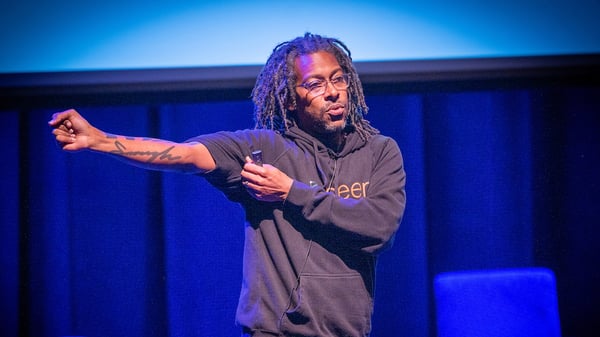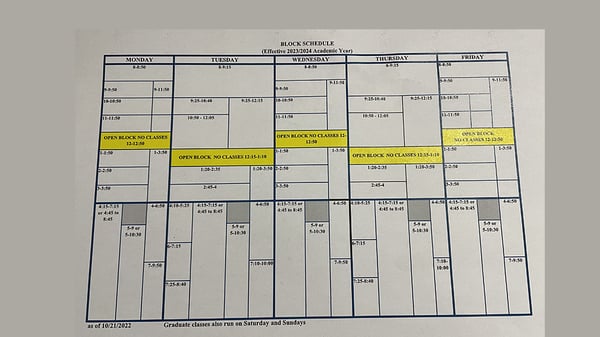On Thursday, October 9, Neumann University welcomed two keynote speakers in the Meagher Theatre for...
Upcoming Spring Classes Promote Student Health

This upcoming spring semester, there are one-credit courses available to students that promote physical and mental well-being.
Professor Jennifer Eskridge will be teaching three online fitness courses in the spring, including intermediate fitness, Pilates, and special topics in in physical education.
These classes are a way for students to get credits while also learning how to maintain physical health and well-being through recorded workouts and lectures that students must watch and carry out, and then submit a reflection on their progress and what they have learned.
Eskridge tracks progress of the students' work through interviews and by keeping a workout log sheet on the frequency and intensity of their workouts. Students can see their progress for themselves and submit it for feedback.
These classes allow students to set their own standards for how they want to improve, and there is no set protocol that everyone must follow. The most important goal is physical progress -- realizing it, feeling good about it, and maintaining it.
“I’ve never felt like students were getting away from the class,” said Eskridge. “I try to make it enjoyable and excitable for them, I’ve always seen that students start liking the way they feel and look, and that’s the goal, to make people look forward to my class.”
There is also a community event held each semester, which students in the class can attend. According to Eskridge, “The event involves a performance to help people understand that everybody has different bodies and that this is a good thing, and that people get encouragement from this event by seeing people of different physical levels exercising together. Everybody can start somewhere in their physical journey.”
Along with physical health, mental health will also be promoted this spring semester.
Professor Susan Long and Professor Liz Loeper will be teaching their INT 226 class: The Practice of Mindfulness. This course provides training in Koru mindfulness, an evidence-based practice designed specifically for college students. All students of all majors are welcome and will learn and practice mindfulness techniques that promote calmness, restfulness, mindfulness, and self-compassion.
This course is grant funded by Trust for the Meditation Process, which provided funding for the book and app.
The course runs for eight weeks and has one meeting per week in person, as well as keeping progress with the use of the Koru app. Each class consists of an open mediation, and two mindfulness practices, which involve breathing, movement, and mediation exercises.
“The goal of of this class is to give students practices for their daily life to help them be more present and aware,” said Long. “It’s not about changing what’s happening, it’s about being present about what’s happening and understanding it.”
Long has seen that students slept better thanks to the practice, are in a better headspace when mediating, and that “by week eight every student says they are a little bit different then when they started.”
The positive effects of this class can also be seen through student feedback. An anonymous quote from a mindfulness student stated that “The best way to describe this course would be transformative. In summation this class is likely the best class I have ever taken, and I cannot say enough good things about it. I have learned so many valuable life lessons that cannot be taught from a textbook. and I will carry this practice and these techniques with me for the rest of my life.”
From another student: “I never knew how much I needed mediation in my life until I took this class, your worries and stressors in life seem to diminish during this class hour because you are actively learning to be in the moment.”
Professor Long encourages everybody to take these mindful approaches whether in her class or not and says to start “by just taking three deep breathes every day.”




